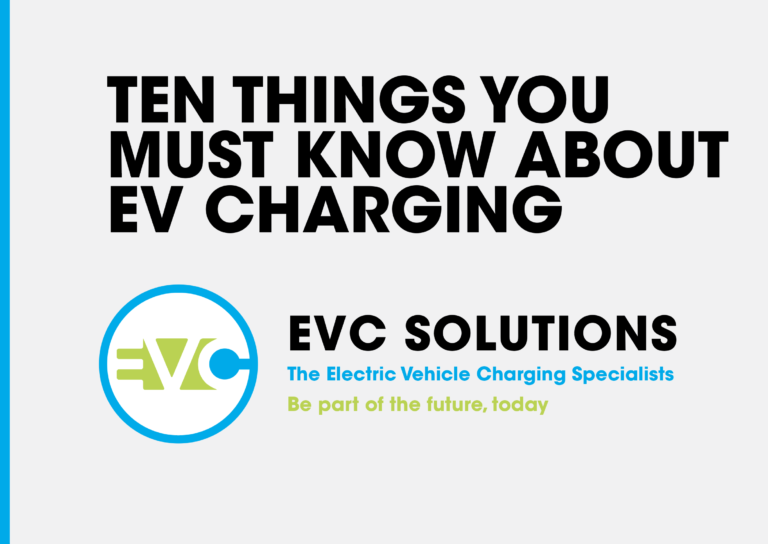First it was VHS versus Betamax, then it was Blur versus Oasis, and now there is talk of Hydrogen versus Battery powered vehicles. Is one actually better than the other or is there something else going on?
At EVC Solutions we are sometimes asked if a Battery Electric Vehicle (BEV) is the right investment to make after moving away from the traditional internal combustion engine (ICE), or is hydrogen the smart move to make?
In truth, both options offer environmental benefits by avoiding the creation of carbon based gas at the exhaust pipe, which is a huge consideration for drivers moving away from ICE, and also both options have well proven technology, so how do we make the right choice?
Most car manufacturers either already have a BEV model available to buy now, or will do within the next year or two. These cars are powered by a Lithium-Ion battery that replaces the need for petrol or diesel.
Hydrogen powered vehicles (FCEVs) typically have a gas tank, and that gas is converted into electricity with ‘fuel cell technology’ which then drives electric motors in the same way as a BEV. The emissions are only water and heat.
So far, so similar.
In our opinion the first separation comes at the refuelling stage. Much has been spoken of the change in behaviour required to have ‘fuel’ available for journeys we are going to make in our future vehicles.
At EVC Solutions we believe the BEV gives some unique benefits and flexibility you don’t have today with either petrol or diesel, and will not have with hydrogen, namely, you can ‘refuel’ at your office or home at very low cost and high convenience, and you can do it right now.
Call us if you don’t think that is true! We can fit your refuelling station, at a modest cost, relatively quickly and you are ready to go.
It is only on unusually long journeys that you will be likely to need to refuel out on the open road and there are already more publicly accessible charge-points than there are petrol/diesel filling stations to choose from and those give you substantial cost saving per mile travelled over the cost of petrol or diesel, even at the premium you will pay versus charging from your home or workplace electricity cost.
Hydrogen however is somewhat more tricky right now.
There are less than 10 publicly accessible stations in the UK where you can refill your vehicle and that makes planning extremely important, and the increased inconvenience becomes a major factor.
The second separation comes with the available choice of vehicles. Hydrogen powered technology is much more limited than electric vehicles and some manufacturers, like Mercedes, have abandoned their investment in the technology altogether.
Why is this?
Mercedes states that they believe the technology will be uneconomical in passenger vehicles for the foreseeable future. Much of this is based on the cost of fuel cells and
hydrogen gas compared to Lithium-Ion batteries and electricity from the grid. Whilst the fuel cells may become cheaper and the hydrogen gas more readily available, the question is, over what time frame? There may be many answers to this, but one is the expectation that this could take ten years or more to ‘level out’ and that is too long for the planet to wait, in terms of the environmental consequence of not having a mainstay alternative to petrol/diesel
For us at EVC the most fundamental separation is the efficiency of turning 100 watts of power from each source into power at the drive motor, which gives an indication of why pundits don’t think hydrogen will win any perceived race for passenger vehicles.
In the two charts, you can see that 80 watts of the 100, in terms of BEVs ends up spinning the motor. For hydrogen, that number drops to 38 watts.
The significance of this is that you’d need the cost of the FCEV technology to be half of that for a BEV for
hydrogen fuel cell vehicles to be economic. At the moment this is nowhere near a reality and so it looks very much like BEVs are the better option right now. I am making this really simple to illustrate the challenge engineers have with the hydrogen fuel cell option, it would take a lot more time to show how this plays out in technical detail of course! See TechExplore.com for more.
It may well be that hydrogen is a better option for HGVs or trains and I would expect to see hydrogen taking at least a share of that need over the next few years, but that difference is about much greater ranges of distance being covered and the fuelling infrastructure options being different in a commercial environment and the power requirements of drive-trains required in these vehicles, for which the economics run quite differently.
So, my personal money is firmly on BEVs and I’m not going to wait several years to see that play out, neither is the mainstream car manufacturing community in general as they are pretty much all ‘charging ahead’, if you’ll forgive the pun, in launching BEVs in huge numbers with all the
multi-billion investment levels required to give us what we need to switch over from ICEs to BEVs today.
Some might say that Betamax was a better product but VHS was more cost effective for its market. The electric vehicle industry is very definitely fast-forwarding toward BEVs as the dominant technology at least for the foreseeable future.
Be part of the future, today.
Nigel Ryan
Supplier and Business Partnering
EVC Solutions Ltd
At EVC we do business that won’t cost the earth.
Contact EVC Solutions on 03300 904030 or or hit the CHARGE ME UP button below.
Want to know more about EV Charging? Download ‘10 Things You Must Know About EV Charging’ here.


